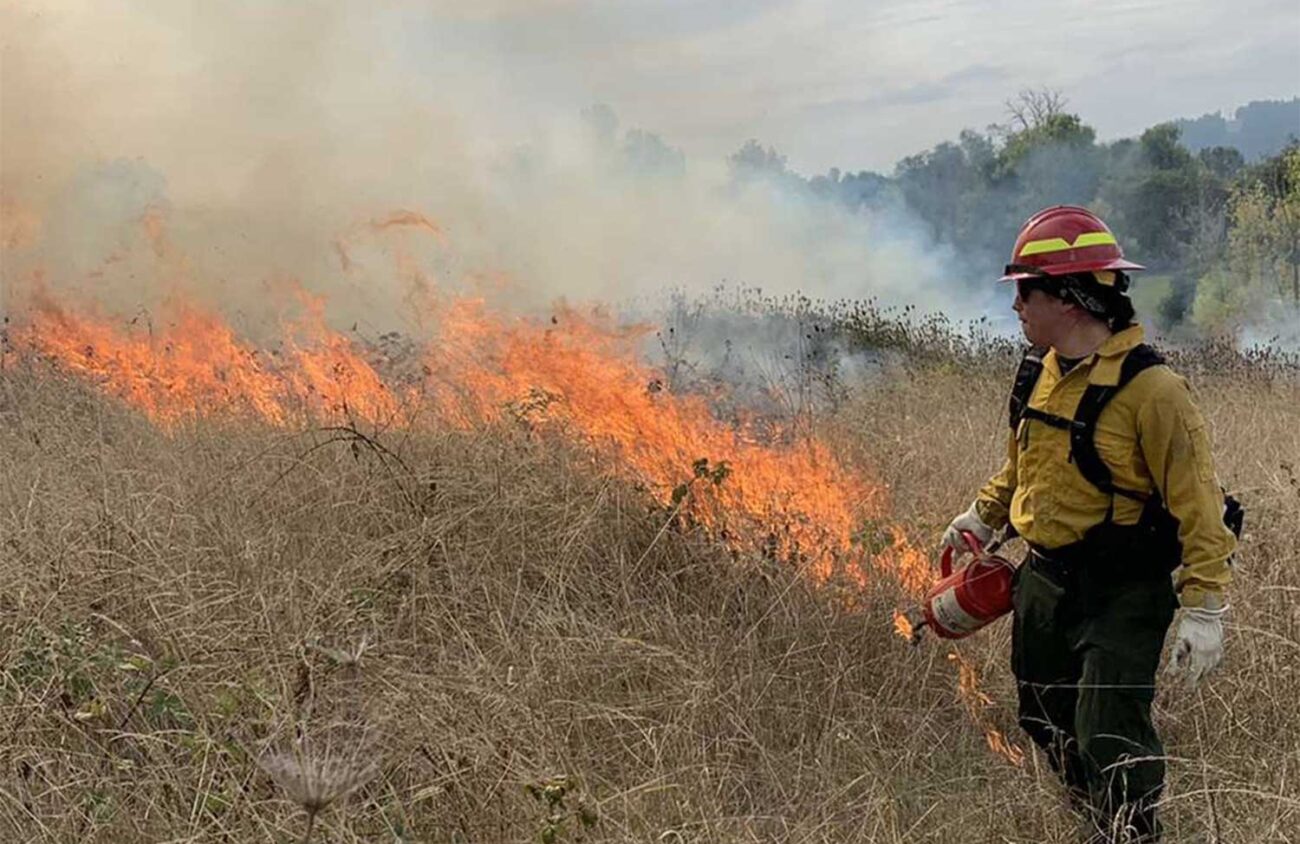As Smaugust turns into Smoketember, Lane Community College kicks off its second year of offering a program in Wildland Fire Management. The program allows students to complete training for a National Wildfire Coordinating Group “red card,” which is a federal wildland fire incident license, and wraps up with a certificate in Wildland Fire Management.
Students will also explore traditional cultural burning practices, learn about wildland fire behavior and how to characterize and measure forest fuels as well as plan and implement prescribed fire.
The fire management program started last year and is being taught by Mike Beasley, a fire behavior analyst; Steve Clarke, past president of the Oregon Fire Contractors Association; and Timothy Ingalsbee, who is a former wildland firefighter and a certified senior wildland fire ecologist, as well as the executive director of Firefighters United for Safety, Ethics and Ecology (FUSEE).
LCC’s program is in a unique position compared to wildland fire courses at other community colleges in Oregon, Ingalsbee says. Other programs, such as Chemeketa Community College’s Fire Suppression degree program or Portland Community College’s Fire Protection Technology, focus more on fighting the fires, while, as Ingalsbee says for LCC, “Now it’s time to understand the fire.”
Ingalsbee says he is hoping for a paradigm shift in how we interact with wildland fire management. He says the areas that are on fire are inevitably going to burn, so it is best to prescribe burns in better conditions free of drought and smoke. Prescribed burning is something that has not been as popular in the past because the narrative on preventing fires has been tied to logging. “Congress has been captured by that narrative, and that the real solution lies more in logging. They love that because there’s revenue to be generated,” Beasley says.
“It would be better to apply fire carefully,” Ingalsbee says. “You know, under the condition of cooler moisture, less wind, less drought. You can kind of whittle down some of that excess fuel that comes every year.”
The Wildland Fire Management program is for students who work in the woods as well as aspiring and current wildland firefighters, members of prescribed burn associations or prescribed fire councils. Additionally, the program works with FireSafe and watershed councils, forest conservationists, environmental educators, small woodlot owners and rural residents, according to its pamphlet.
Although the program is still in its infancy, Ingalsbee hopes more people will sign up, compared to the half dozen or so who “stumbled upon it” last year.
The Wildland Fire Management classes have also extended to those aiding in fire relief, not just to those who are on the fire line. Former student Lisa Moeller is a board member of the nonprofit McKenzie Valley Long Term Recovery Group and assisted those who had to evacuate from the Lookout Fire. Moeller was handing out gift cards for food, air purifiers and meals in the parking lot of Craig’s Lucky Logger Restaurant on McKenzie Highway. She took Ingalsbee’s ecology of wildfires class in 2022 in preparation to be a MVLTRG board member.
Several organizations across the Willamette Valley have expressed interest in implementing more prescribed burning, such as Oregon Department of Fish and Wildlife, Bureau of Land Management, the Confederated Tribes of Grand Ronde, city of Eugene, McKenzie River Trust, Oregon Woods and the Ecostudies Institute.
